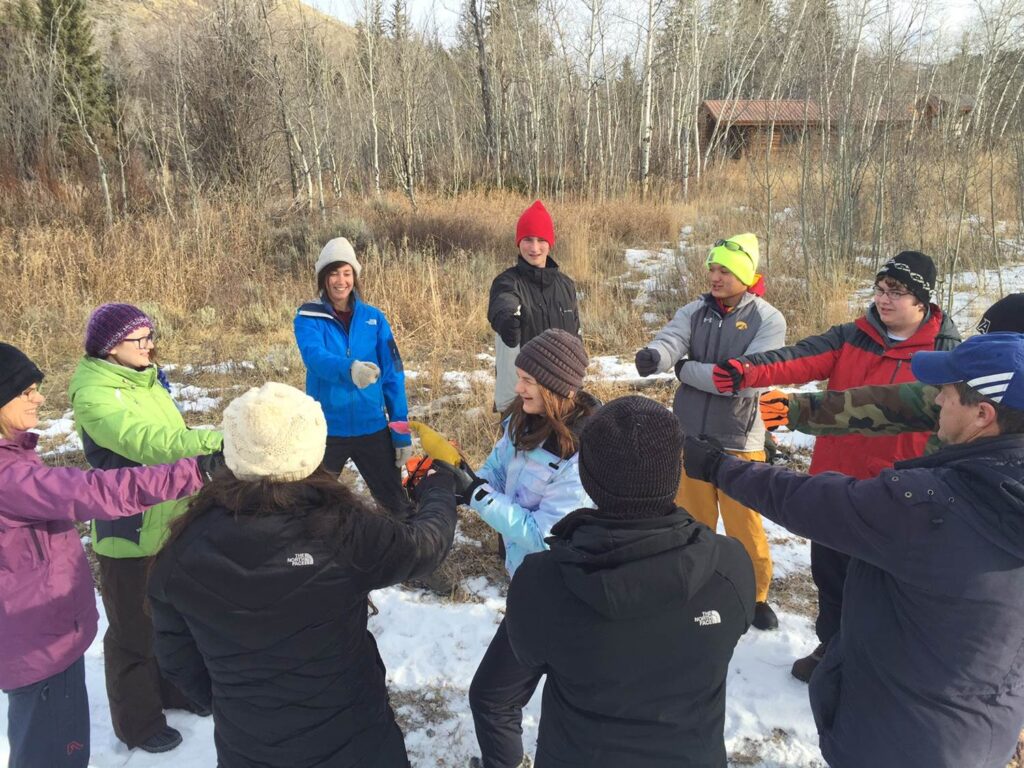Editor’s Note: This is Nicole Gautier’s second blog entry about her experiences as a graduate student. In this piece, written after her fall teaching practicum, Nicole shares her thoughts about the dual roles of being a teacher and a student. Click here to read Nicole’s first blog entry.

What baffles me over and over again about being here in the Teton Science Schools’ graduate program is the simultaneousness of it all. There is a constant ebb and flow of teaching and being taught. We are often students and teachers within the same moment. There are these beautiful tensions between our identities, between the communities we are responsible to. We balance between myriad accountabilities.
 For me, learning how to be a better educator is driven by the hope of reconciling multiple passions. Or, rather, it is driven by the hope of identifying the intersections between these passions and turning them into a career, a lifestyle. One of the best things about education is the basic premise of human potential. Through this process of gaining knowledge, a person can expand, can move towards self-realization. This is my “why.”
For me, learning how to be a better educator is driven by the hope of reconciling multiple passions. Or, rather, it is driven by the hope of identifying the intersections between these passions and turning them into a career, a lifestyle. One of the best things about education is the basic premise of human potential. Through this process of gaining knowledge, a person can expand, can move towards self-realization. This is my “why.”
TSS has its own language and specific systems at work. I had never heard the term “Positive Learning Environment” roped into an acronym before, although I was aware of the premise. PLE has been one of the biggest takeaways of the season. A supportive environment allows students to feel safe hypothesizing, to potentially be wrong. I appreciate that the programming here does not “educate people out of their creative capacities,” as Ken Robinson spoke to in his TED talk.

It is critical that we demand more of ourselves, that we “operate at the edge of competence.” I certainly feel that way about my field science practices. A low point of the season was taking students into the field with the intent of coring trees and realizing that I myself could not recall how to properly use the cores. It was an explicit reminder – know your tools. It was also a lesson in my own memory retention. If I am not putting something into practice, I will rapidly forget it.
So, practice. Work on delivering lessons with distinct objectives and a closure. Mess up some more. Use this place as context for teaching. Take the advice of a former grad student: “Feel able to be yourself, to express yourself within a community of learners. It enriches and deepens bonds.”
I will continue to attempt to find my own line, and I will not hesitate to be the guide.


